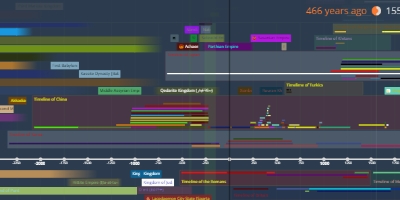Kingdom of Israel [united monarchy] (jan 1, 1047 BC – jan 1, 930 BC)
Description:
The United Monarchy (Hebrew: הממלכה המאוחדת) is the name given to the Israelite kingdom of Israel and Judah, during the reigns of Saul, David and Solomon, as depicted in the Hebrew Bible. This is traditionally dated between 1047 BCE and 930 BCE. On the succession of Solomon's son, Rehoboam, around 930 BCE, the Biblical account reports that the country split into two kingdoms: the Kingdom of Israel (including the cities of Shechem and Samaria) in the north and the Kingdom of Judah (containing Jerusalem) in the south.The United Monarchy was accepted on an archaeological basis until Israel Finkelstein published two essays proposing a "Low Chronology". :59–61 This stratigraphic model posited that what was otherwise taken as abundant archaeological evidence for a United Monarchy in the 10th century BCE should instead be dated to the 9th century BCE. This model also places David in the Iron I period, which would suggest that he was not a king of a centralized kingdom but a chieftain over a small polity in Judah, disconnected from the tribes of the northern kingdom. Archaeologists have since fiercely debated regarding whether or not to accept the Low Chronology.
Since this debate began, Amihai Mazar proposed the "Modified Conventional Chronology" which places the beginning of the Iron IIA period in the early-10th century and its end in the mid-9th century. According to Mazar, such Modified Chronology would "fix" the problems of the Traditional Chronology, while continuing to date the archaeological findings to the time of Saul, David and Solomon (11th-10th century BCE). Mazar has strongly argued against Finkelstein's views.
Mazar's Modified Conventional Chronology has received fairly wide acceptance, but no consensus on the topic exists.[19] The debate is still ongoing and scholars are divided among those who support the historicity of the biblical narrative, those who completely deny the existence of the United Monarchy and those who support its existence but believe that the Bible contains theological exaggerations.
Recent archaeological discoveries by Eilat Mazar in Jerusalem and Yosef Garfinkel in Khirbet Qeiyafa seem to support the existence of the United Monarchy.
Added to timeline:
Date:
jan 1, 1047 BC
jan 1, 930 BC
~ 117 years
